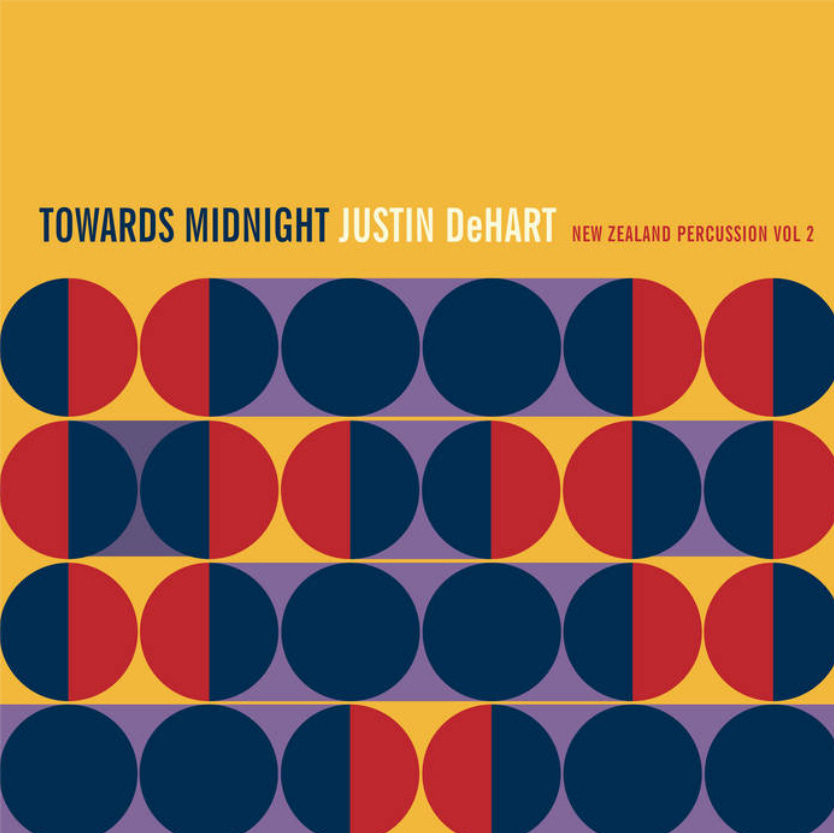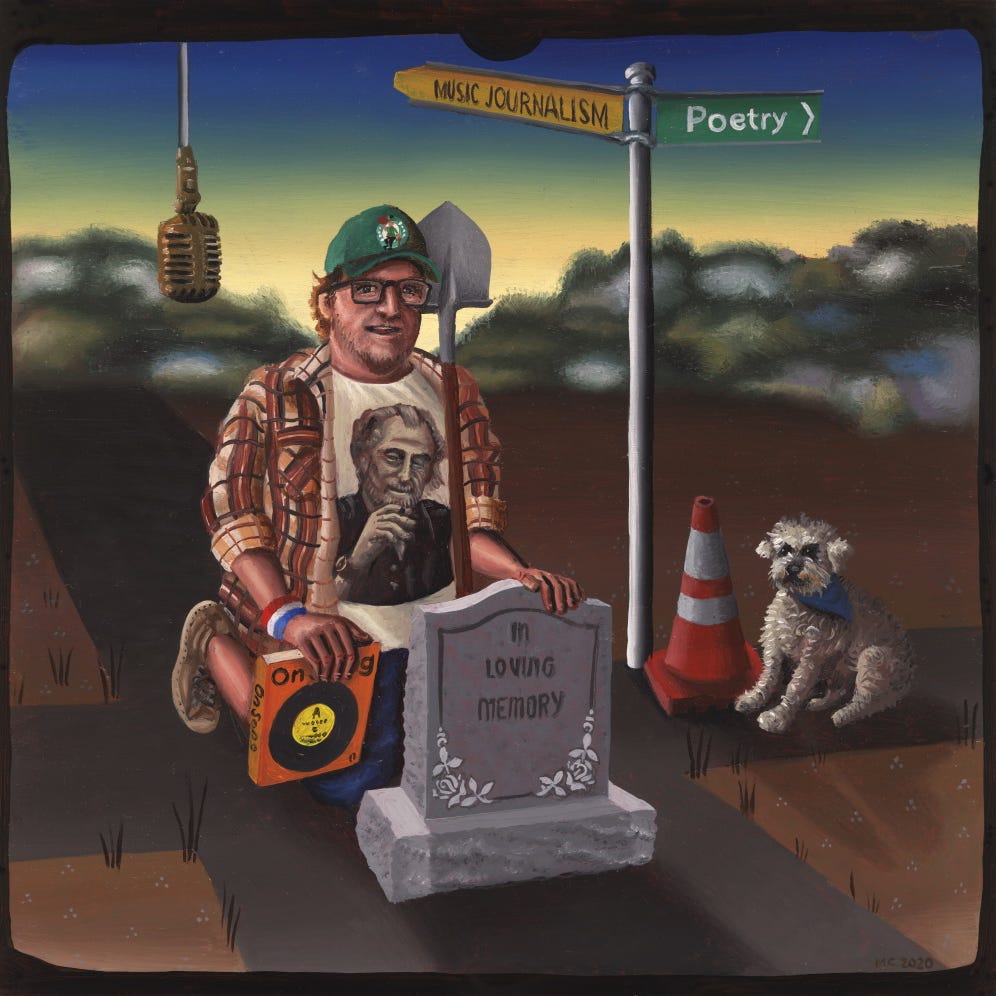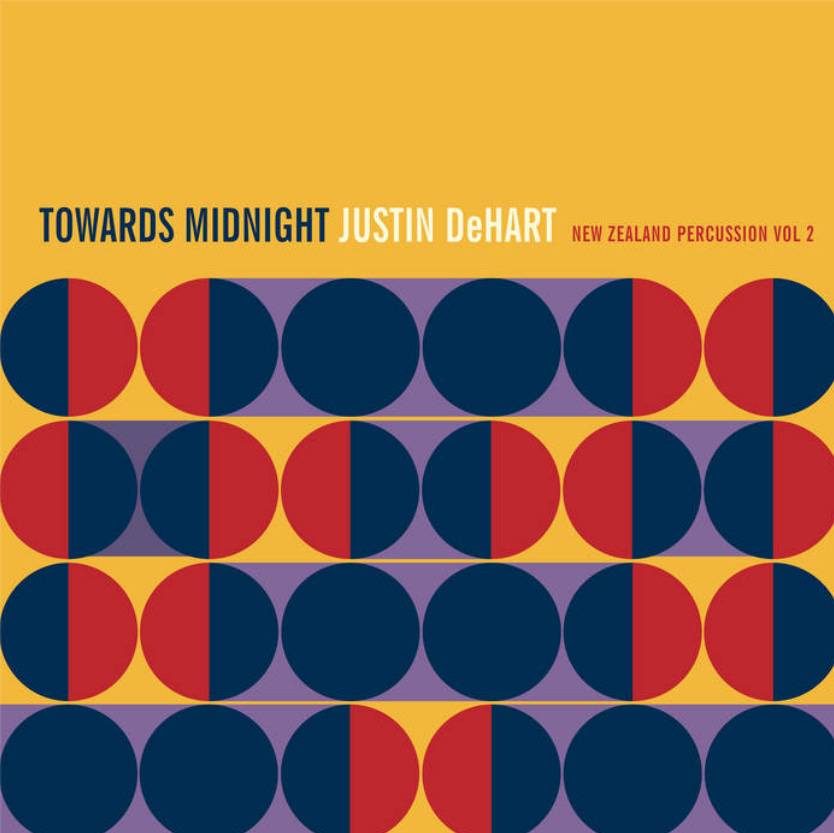Justin DeHart: Towards Midnight - New Zealand Percussion Vol. 2
An album review of internationally acclaimed, NZ-based percussionist Justin DeHart, with his second volume of commissioned Kiwi-composed drum jams
Justin DeHart
Towards: New Zealand Percussion Vol. 2
Rattle
Justin DeHart has played and recorded all around the world but for the last decade or so has made The University of Canterbury’s School of Music his home, heading up the percussion programme.
In a first volume, reviewed in the link above, DeHart commissioned well-known Kiwi composers to create drum and percussion pieces for him. It is a brilliant album that pulses and burns with ideas, and is held together by DeHart’s flawless precision as a player, arranger, producer and, I guess, all-around advocate for the form.
The solo drum/percussion album isn’t for everyone. But I love them. And fortunately DeHart has been prolific. Also releasing Ring:
Possibly an even more idiosyncratic release, but for me every bit as rewarding.
The wait was not long for a Volume 2 of New Zealand Percussion. And Towards Midnight features the big guns. Opening with Gareth Farr’s intoxicating Macet, which, over 16 minutes, explores the ideas of a Balinese ‘traffic jam’, which is where the title comes from. Gamelan ‘collides’ with traditional drum kit pieces here, and though DeHart commissioned solo percussion pieces, Farr has added his electronic backing track, a component of so many of his compositions; so essentially a dialogue between Justin and the ethereal ‘background’ atmospherics. It is the perfect intro to this enlivened set of recordings.
John Psathas’ Infinite Mind is next. DeHart plays a spiralling marimba piece around interwoven fragments from an interview by a 94-year-old Noam Chomsky (conducted in 2023).
The centrepiece of the album is Kōrero Kōhatu - A Conversation With Stones (its reo title literally translating to ‘talking stones’). Dawson admits, in the liner notes, to being taken with the stone since early boyhood and hopes here to try to channel the voices of our mineral ancestry.
Antonia Barnett McIntosh contributes to conduct them to, less a score than a set of instructions for channeled improvisations. DeHart uses an eclectic array of found and bought percussion pieces to interact with the instructions allowing time and space to flow through and around the finished piece.
James Gardner offers the album’s final track, Traps, another epic, in fact the longest piece on the album at 21:51. This piece, for solo drum kit, moves through various rudimentary rolls across components and roles within genres (jazz, military, rock). And the idea of the snare drum is extended to various other pieces of the kit, using seed pod rattles and the like to ‘snare’ the bass drum and toms.
DeHart says these pieces were recording “towards midnight” — as that’s usually when it becomes quiet enough in the outside world for him to think, and be uninterrupted by extraneous noise, composed also within himself.
You may choose to listen to this whenever you like, but the title is a good indication of a nice time to try it on at least a first hearing.
I’m in awe, again, of his facility, and the scope of the composers gathered here. There is a real sense of articulation and flow within the pieces, DeHart the conduit for disparate compositional voices.









